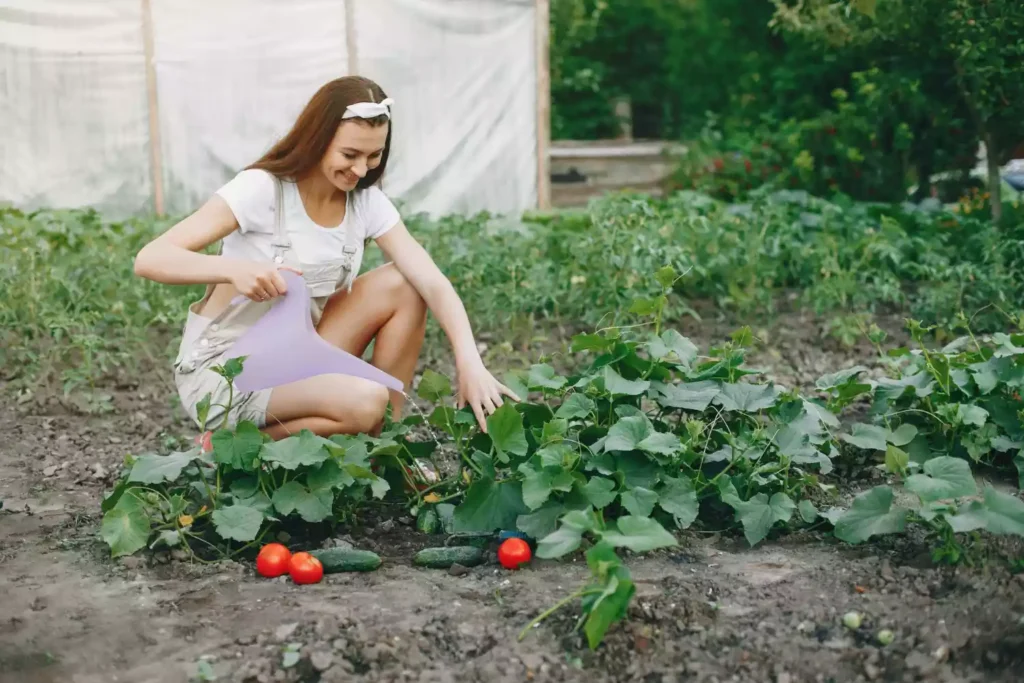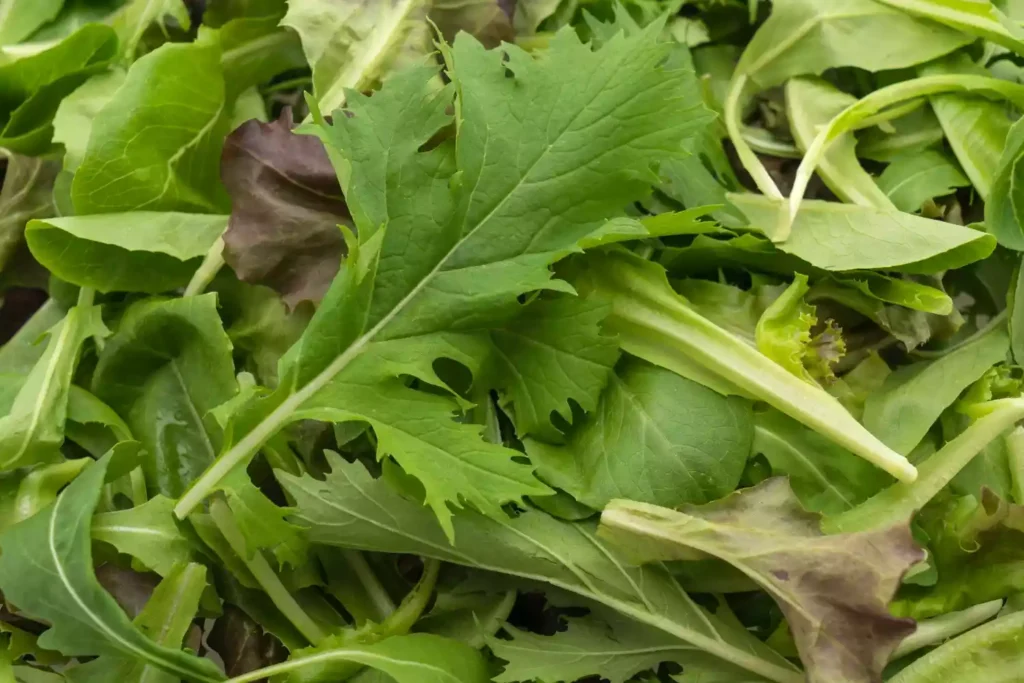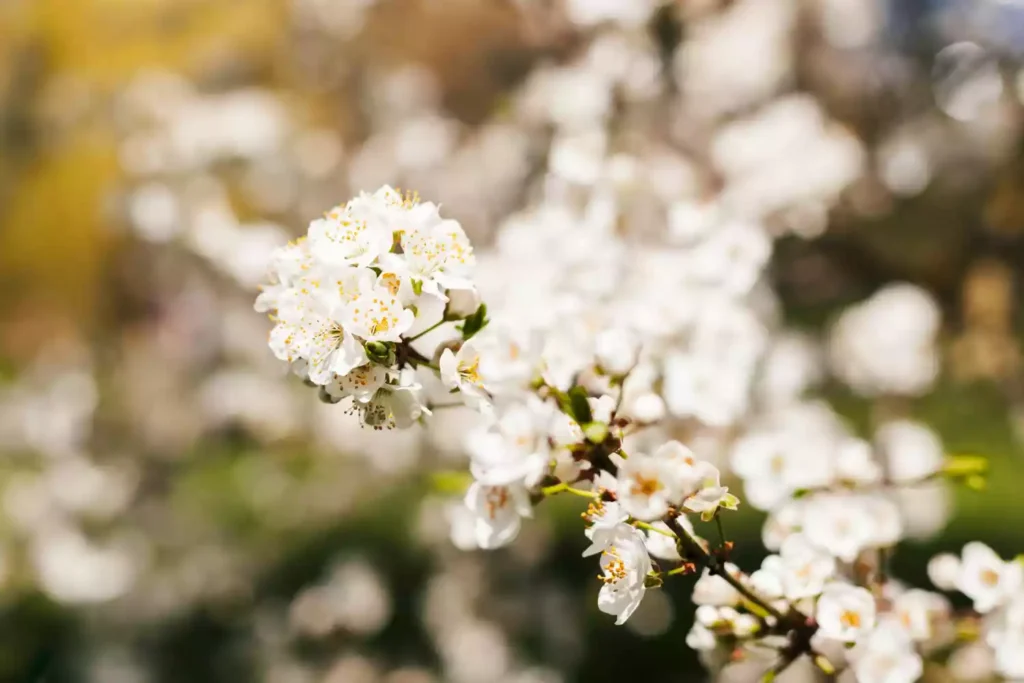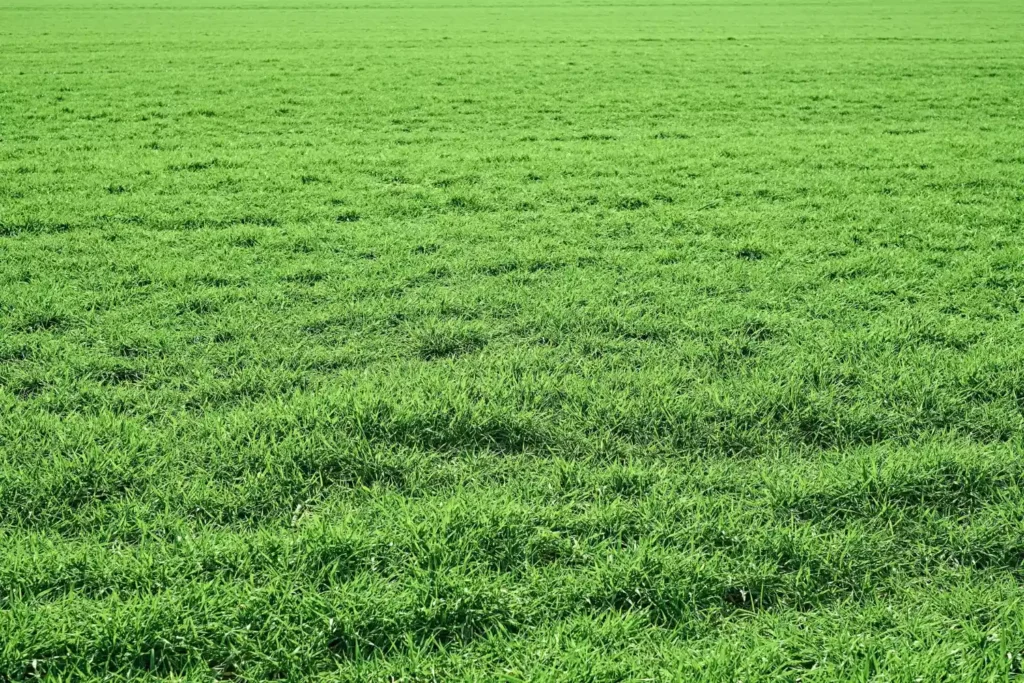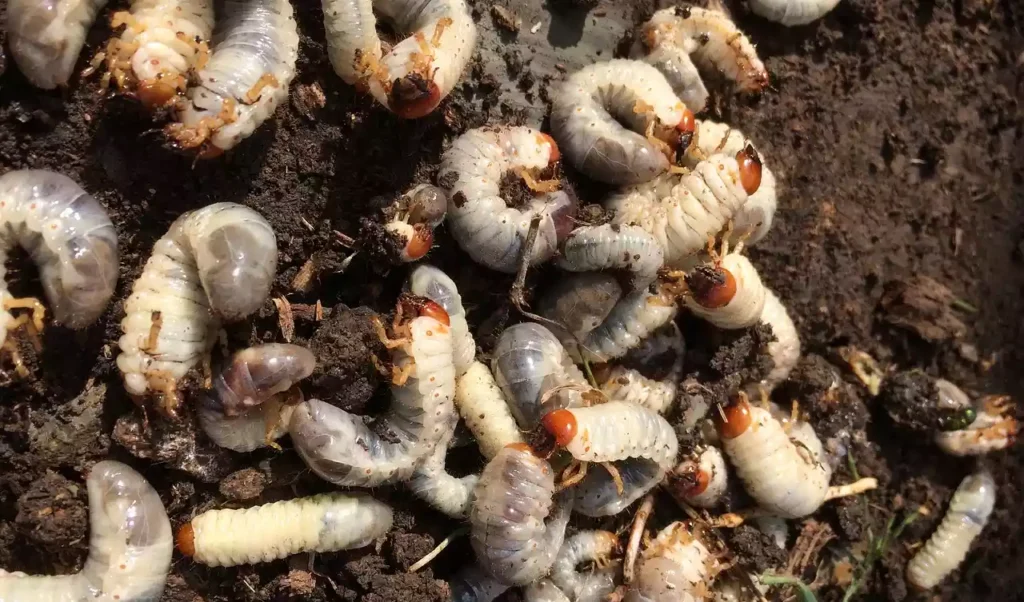As a gardener, I’m always looking for ways to improve the health and growth of my plants. One common practice is the use of worm castings and fertilizer, but many people are unsure if it’s safe to use them together.
In this article, I’ll explore the benefits of using worm castings and fertilizer together, as well as the different ways they can be used to improve soil health and plant growth.
While some may think that using worm castings instead of fertilizer is a viable option, it’s important to understand the difference between the two. Worm castings are a type of organic matter that is produced by worms as they digest organic materials, while fertilizer is a substance that is added to soil to provide nutrients for plants.
But can these two substances be used together, and if so, how? Let’s dive into the world of organic gardening and find out.
Can I Use Worm Castings Instead of Fertilizer?
Don’t miss out on the benefits of using both worm castings and fertilizer together, because while worm castings cannot completely replace fertilizer, they’re an extremely valuable soil amendment that can provide high-quality nutrients that your plants will love.
Worm castings contain a variety of nutrients that are ready to be absorbed by the plants, including nitrogen, phosphorus, potassium, magnesium, manganese, zinc, iron, copper, calcium, cobalt, and carbon. They also increase the germination rates of plants, improve seedling and root length, and are good for almost all plants except those that prefer acidic soil.
However, it’s important to note that worm castings cannot replace fertilizer entirely due to the lack of volume of nutrients. Fertilizer provides larger amounts of nutrients that are necessary for plant growth and should still be used in conjunction with worm castings.
Mixing castings, fertilizer, and other soil amendments is the best solution to ensure that your plants are receiving all the nutrients they need for optimal growth and health.
Are Worm Castings Fertilizer?
Mixing the black gold of the garden with traditional fertilizer can create an exceptional combination for your plants. However, it’s important to understand that worm castings aren’t a fertilizer, in the traditional sense. Instead, they’re a soil amendment that provides high-quality nutrients that can be immediately absorbed by the plant.
One of the benefits of using worm castings and fertilizer together is that it won’t lead to nutrient burn, as long as it’s used correctly. To ensure optimal growth and health of your plants, consider using a combination of worm castings, fertilizer, and other soil amendments.
This will provide your plants with a diverse range of nutrients that address their changing nutritional needs throughout their life cycle. Additionally, it’s important to measure the nutrients your plants need to ensure that you’re providing them with the appropriate amount of each nutrient.
Are Worm Castings A Complete Fertilizer?
If you’re wondering whether worm castings alone can provide all the nutrients your plants need, the answer is no. While worm castings are an excellent source of nutrients for plants, they don’t contain all the necessary nutrients in sufficient amounts.
For example, worm castings are generally low in nitrogen, which is essential for plant growth. This means that while worm castings are a valuable soil amendment, they should not be considered a complete fertilizer.
That being said, worm castings are still an essential part of any gardening or farming operation. They provide high-quality nutrients that are readily available to plants, improving soil health and the overall growth and productivity of your plants.
When used in conjunction with a complete fertilizer, worm castings can help create a healthy and thriving garden or farm that produces healthy and nutritious crops. So, while worm castings may not be a complete fertilizer on their own, they are an important tool for any gardener or farmer looking to improve soil health and plant growth.
How To Use Worm Castings As Fertilizer
When it comes to using worm castings as fertilizer, there are a few different methods that I’ve found to be effective.
One way is to use it as a top dressing, where you simply sprinkle it on top of the soil around the base of your plants.
Another option is to use it as a side dressing, which involves digging a small trench beside your plants and filling it with the castings.
You can also give your seedlings the best start by mixing worm castings into the soil before planting.
Lastly, worm castings can be used as a soil amendment to prepare beds for planting by mixing it into the soil before planting your crops.
As a top dressing
Applying worm castings as a top dressing enhances soil health and provides immediate high-quality nutrients for plants. To use worm castings as a top dressing, simply apply a layer of it on top of the soil around the base of the plant. It’s important not to let the castings touch the plant’s base, as it can introduce mold.
Worm castings can be used as a top dressing for almost all plants, except those that prefer acidic soil. It’s also important to note that worm castings should be applied every 2 months for best results and can stay in the soil for up to 6 months.
Using worm castings as a top dressing can help balance overly acidic or alkaline soil, reduce soil erosion, and help retain water and minerals in the soil. Overall, worm castings are a transformative soil amendment that can benefit just about any kind of plant.
As a side dressing
Boost your plant’s growth by adding worm castings as a side dressing. Side dressing refers to the practice of adding fertilizer and other soil amendments to the sides of plants to provide additional nutrients and improve soil health.
Worm castings are a perfect addition to side dressing as they contain a variety of nutrients that can be absorbed by plants immediately. To side dress with worm castings, simply sprinkle a handful of castings around the base of your plants and gently work them into the soil.
This will provide your plants with an extra boost of nutrients and improve soil health. It’s recommended to side dress every 2 months for best results. Worm castings can stay in the soil for up to 6 months, so you don’t have to worry about overdoing it.
Give your plants the extra love they need with a side dressing of worm castings.
To give seedlings the best start
For a head start on growing your seedlings, I highly recommend adding some worm castings to their soil mix. Worm castings are full of nutrients that are readily available for plants to absorb, making them an excellent source of food for seedlings.
The high-quality nutrients found in worm castings can help your seedlings grow stronger and healthier, which will give them the best start possible. When adding worm castings to your seedlings’ soil mix, be sure to mix them in thoroughly. You want to ensure that the castings are evenly distributed throughout the soil to give your seedlings the best chance of absorbing the nutrients.
Additionally, you can also use worm tea to water your seedlings. Worm tea is made by steeping worm castings in water for a week, and it’s an excellent way to provide your seedlings with a boost of nutrients. With the help of worm castings, your seedlings will grow into strong, fruitful plants in no time!
As a soil amendment to prepare beds for planting
If you want to prepare your garden beds for planting and create a healthy soil environment, incorporating nutrient-rich worm castings into your soil mix is a great way to do it.
Worm castings are an excellent soil amendment that can help improve soil structure, increase water retention, and provide your plants with a wide range of essential nutrients.
To use worm castings as a soil amendment, simply mix them into your soil at a ratio of 10-20% by volume. This will help improve soil health and provide your plants with a nutrient-rich growing environment.
Additionally, you can top-dress your garden with worm castings by sprinkling them around the base of your plants. This will help provide your plants with an extra boost of nutrients throughout the growing season.
Overall, incorporating worm castings into your soil mix is an excellent way to improve soil health and provide your plants with the nutrients they need to thrive.
Is worm tea a form of liquid fertilizer?
One option to consider for providing liquid nutrients to your plants is the product made by steeping worm castings in water for a week. This is known as worm tea, and it is a nutrient-rich liquid fertilizer that can be applied to plants in a variety of ways.
Worm tea contains a variety of nutrients that are readily available to plants, including nitrogen, phosphorus, potassium, calcium, and magnesium. Additionally, it’s full of beneficial microorganisms that can improve soil health and plant growth.
To make worm tea, simply mix worm castings with water and let it steep for about a week. The resulting liquid can then be applied to your plants as a foliar spray, soil drench, or added to your irrigation system.
It’s important to note that worm tea should be used within 24-48 hours after brewing, as the nutrient content can start to degrade quickly. Overall, worm tea is a great option for those looking to supplement their plant’s nutrient needs with a liquid fertilizer that’s both organic and full of beneficial microorganisms.
Can You Over-Fertilize With Worm Castings?
Now that we know worm tea isn’t a liquid fertilizer, let’s talk about over-fertilizing with worm castings.
One of the great benefits of using worm castings is that they can’t burn plants, so it’s hard to overuse them.
Unlike traditional fertilizers, worm castings don’t have an NPK ratio. This means they don’t contain high levels of any single nutrient that can harm plants in large quantities.
However, it’s important to remember that plants’ nutritional needs change throughout their life. Using too much of any single nutrient can lead to imbalances.
While worm castings are a valuable source of nutrients, they can’t replace a complete fertilizer for certain types of plants. It’s best to mix castings, fertilizer, and other soil amendments to provide a balanced and diverse range of nutrients for your plants.
As with any fertilizer or soil amendment, it’s important to measure which nutrients your plants actually need and adjust accordingly.
Can Worm Castings Burn Plants?
When using worm castings, it’s important to understand if they can potentially harm your plants by burning them. The good news is that worm castings cannot burn plants, even if you use too much.
Unlike traditional fertilizers that contain high levels of salts that can damage the plant roots, worm castings have a neutral pH and provide slow-release nutrients that are gentle on plants. This means that you can use worm castings as much as you want without worrying about over-fertilizing or burning your plants.
Worm castings are full of beneficial bacteria, fungi, and other microorganisms that help break down organic matter and make nutrients available to plants. They also contain a wide range of nutrients that are essential for plant growth, including nitrogen, phosphorus, and potassium.
Since worm castings are a natural and organic source of plant nutrients, they are safe to use and will not harm your plants. In fact, using worm castings in combination with traditional fertilizers can provide your plants with the best of both worlds, giving them the immediate boost of nutrients they need from the fertilizer while also improving the overall health and vitality of the soil with the slow-release nutrients from the worm castings.
Are Worm Castings Good for All Plants?
Don’t let concerns about soil pH hold you back from using worm castings, as they’re beneficial for almost all types of plants. While worm castings have a neutral pH of 7, making them unsuitable for acid-loving plants, they can still be used with these plants by mixing in some acidic amendments.
However, they’re transformative for almost any type of soil and beneficial for just about any kind of plant. One of the reasons worm castings are good for all plants is because they provide a variety of nutrients that are ready to absorb by the plants. These nutrients include nitrogen, phosphorus, potassium, magnesium, manganese, zinc, iron, copper, calcium, cobalt, and carbon.
In addition to providing high-quality nutrients that can be absorbed by the plant immediately, worm castings can also increase the germination rates of plants and improve seedling and root length. They can also help balance overly acidic or alkaline soil, and balance carbon and nitrogen, reduce soil erosion, and help retain water and minerals in the soil.
Overall, worm castings are an extremely valuable soil amendment that can benefit any garden.
Are Worm Castings Better Than Compost?
Looking for a soil amendment that can provide your garden with high-quality nutrients and improve soil health? Consider the benefits of worm castings versus compost.
While both are excellent choices, worm castings offer several advantages over compost. Firstly, worm castings are a more concentrated source of nutrients than compost, allowing for more efficient use by the plant. Additionally, worm castings are rich in beneficial microbes and fungi that can improve soil health and promote plant growth. Lastly, worm castings have a neutral pH, making them suitable for a wider range of plants compared to compost, which can vary in pH depending on the materials used.
Overall, incorporating worm castings into your garden is a smart choice for any gardener looking to improve soil health and provide their plants with high-quality nutrients.
Conclusion
Overall, using worm castings and fertilizer together can provide numerous benefits for your garden. They can improve soil health, increase plant growth, and enhance the flavor and nutrition of your fruits and vegetables. By combining the nutrient-rich properties of worm castings with the targeted nutrients of fertilizer, you can create a powerful and effective tool for organic gardening.
Imagine walking through your garden, surrounded by lush greenery and vibrant colors. The air’s filled with the sweet fragrance of blooming flowers and the earthy scent of fresh soil. As you harvest your bountiful crops, you can taste the difference in the rich and flavorful produce that you’ve grown with the help of worm castings and fertilizer.
With these natural and sustainable methods, you can create a thriving ecosystem that nourishes both your plants and the environment. So, why not give it a try and see the amazing results for yourself?

